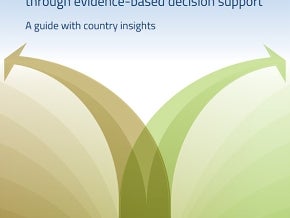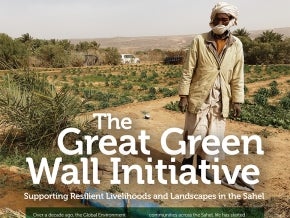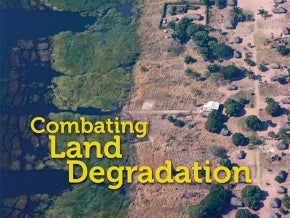
The goals of last year’s historic Paris Agreement will not be met without greater action to scale-up climate-smart land use. As such, leaders from the public and private sector met today at Climate Action 2016 in Washington DC to share experiences and ideas to help tackle the issue.
US Secretary of Agriculture, Tom Vilsack joined other speakers in a session on Catalyzing Climate-Smart Land Use that the GEF organized together with the World Business Council for Sustainable Development and We Mean Business.
“Change starts with a positive attitude,” said US Secretary of Agriculture Tom Vilsack in his opening remarks. “It’s important to emphasize economic opportunities when talking about climate-smart agriculture.”
“Land use and change is the source of 25 percent of all global greenhouse gas (GHG) emissions – and farmers are the most vulnerable,” said Maria Fernanda Mejia, President of Kellogg’s Latin America. “Climate-smart agriculture is important for Kellogg as we are concerned with food security & impacts of climate change.”
Also on the panel, CEO of New Forests David Brand spoke of the need to intensify agricultural production to feed the world’s growing population. “We need to double food production to achieve food security,” he said. “But any plantation intensification should happen on already degraded land and not convert any new forest areas.”
Land use is the source of about a quarter of all global greenhouse gas (GHG) emissions, with roughly half the contribution coming from the agriculture (crop and livestock) sector and the other half from deforestation and forest degradation. At the same time, climate-smart land use presents an opportunity in several ways.
“Climate-smart land use can help us advance on food security, rural development, and climate change adaptation and mitigation,” said Mohamed Bakarr, GEF Lead Environmental Specialist. “It can also directly help curb GHG emission and increase carbon stocks through the protection of high-carbon stock forests and improved land management and agricultural production practices.”
There is currently an unprecedented commitment to climate-smart land use, shown by contributions from countries to the Paris Agreement and pledges from private companies, international organizations and civil society.
A majority of the 180 countries that submitted their Intended Nationally Determined Contributions (INDCs) in advance of COP21 included agriculture, land use, land use change or forestry in their mitigation targets and adaptation strategies, and more than 50 companies have pledged to eliminate deforestation from the production of agricultural commodities.
“Through the INDC commitments and the SDGs, the ‘what’ and ‘why’ are very clear. Now we need to figure out the ‘how’,” said Sunny Verghese, Co-Founder & Group CEO of Olan International Ltd. “Governments and policy makers have done their part. It’s time for the private sector to step up to ensure we can contribute in achieving food security, and increase irrigation and water usage efficiencies.”
However, much more is needed to translate these commitments into tangible results. The Climate Action 2016 meeting was designed to enable a dialogue among key actors in the land use sector to reinforce implementation strategies, strengthen multi-stakeholder partnerships, identify innovative approaches for scaling up, and bring land use to the center of the climate action conversation.


